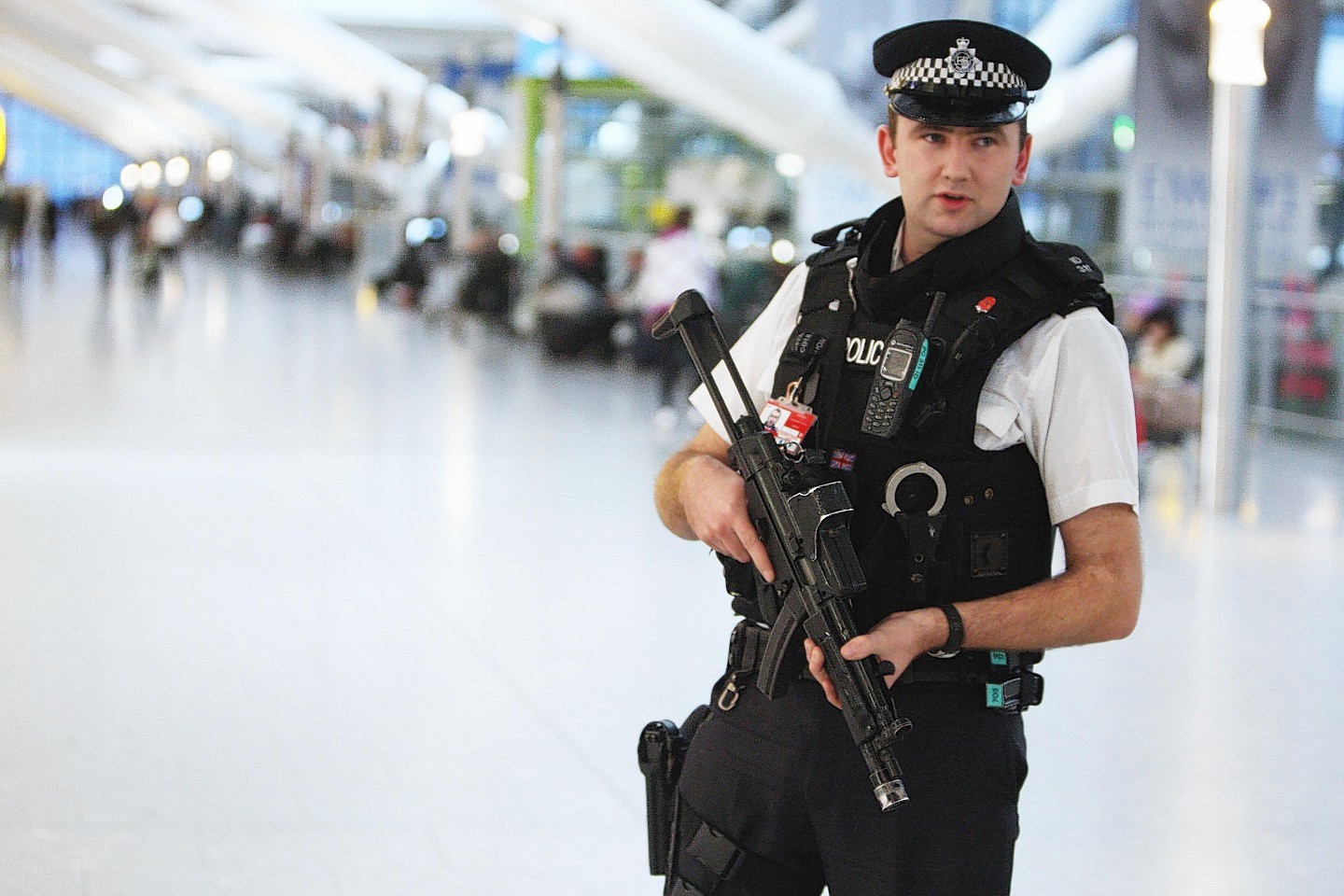Police must ensure the Muslim community in Aberdeen does not feel targeted by officers using increased counter-terrorism powers, leaders at the city mosque have said.
The plea comes after senior officers warned they would be stepping up stop and searches and detentions at airports in the north and north east, in light of the growing threat from IS (Islamic State) militants and a terror attack on UK soil.
Elders and trustees of Aberdeen Mosque and Islamic Cultural Centre have now held talks with Justice Secretary Kenny MacAskill over the issue.
Leaders have also visited the city’s airport to see for themselves the use of Schedule 7 powers, which allow passengers to be stopped and quizzed without any reasonable suspicion they have been involved in terrorist activity.
The heightened security has been introduced as inquiries continue into former Aberdeen University student Abdul Raqib Amin, who is now in Syria and has appeared in a recruitment video for IS.
The 25-year-old attended the mosque as a child before he and his family moved to Leicester.
A spokesman for the board of trustees at the building in The Spital told the Press and Journal the Muslim community did not want to be isolated or targeted by anti-terror powers.
He said: “We do support the security measures as they are there to protect the whole community. They are for the protection of everyone, the whole community – and that includes Muslims.
“At the same time, as a Muslim community we don’t want to be isolated and we don’t want to feel targeted.”
The spokesman said professionals working in the city who had attended the mosque had been stopped “many, many” times and questioned by police at the airport about their movements.
However, it is thought that the full use of Schedule 7 – where property can be seized and DNA taken – has been limited to a couple of cases.
He added: “What we strongly emphasised during the meeting is that Aberdeen is an oil and gas city with two large universities and a huge hospital.
“The city basically evolves around these three institutions and professionals travel all the time and what we see is that people – Muslims – are stopped again and again.
“People are coming into the country, they are coming from abroad and they are stopped and questioned for 10, 15, 20 minutes. It does irritate people and makes them uncomfortable. People start to think ‘why us’?”
The mosque spokesman said he understood that police were faced with a difficult job in balancing the need to question passengers with the sensitivities of the Muslim community.
“We do not want to have special treatment,” he added.
“At the end of the day if the threat to security involves Muslims and if the Muslim faith comes into it, it is very difficult for the police and the system to create something different.
“It is a very sensitive balance to strike.”
Detective Chief Superintendent John Cuddihy, head of counter terrorism and organised crime at Police Scotland, earlier told the Press and Journal that passengers known to have travelled to Syria, Iraq, Yemen and other countries linked to Al-Qaeda activities would be stopped at Aberdeen and Inverness airports to ensure they did not pose a threat to security in Scotland.
Humanitarian workers and those employed in high-risk countries would also be targeted.
Last night, Mr Cuddihy said: “Police Scotland enjoys a very positive relationship with the Muslim community in Aberdeen and indeed throughout the whole of Scotland.
“We understand the concerns regarding the use of schedule 7 and we invited members of the Muslim community to visit Aberdeen airport to see our officers using these powers first hand.
“Those who did visit were very positive about the way our officers conducted themselves and satisfied that the use of these powers was entirely proportionate.
“We will continue to work alongside our partners in the Muslim and other ethnic minority communities to make sure that this positive dialogue continues.”
